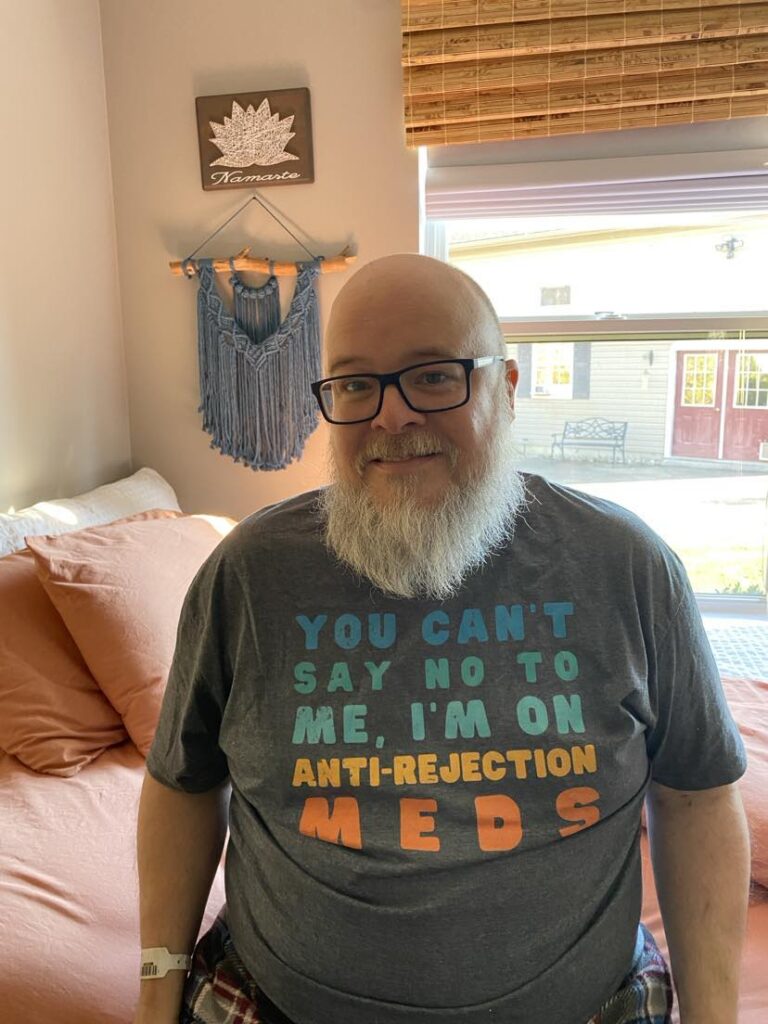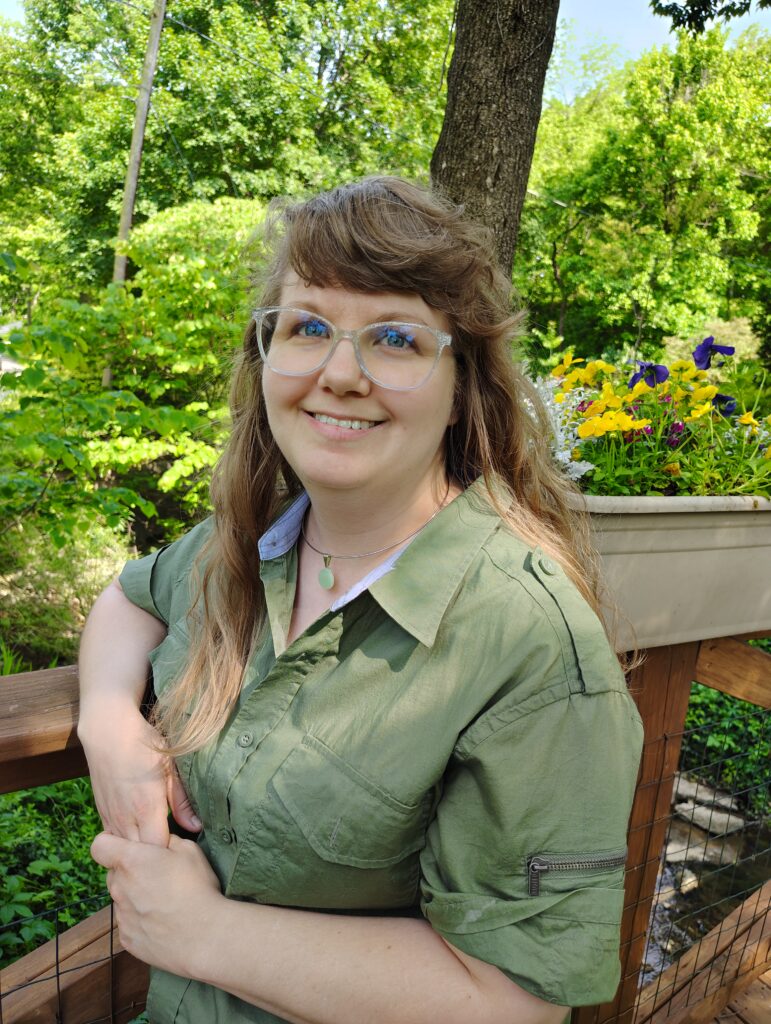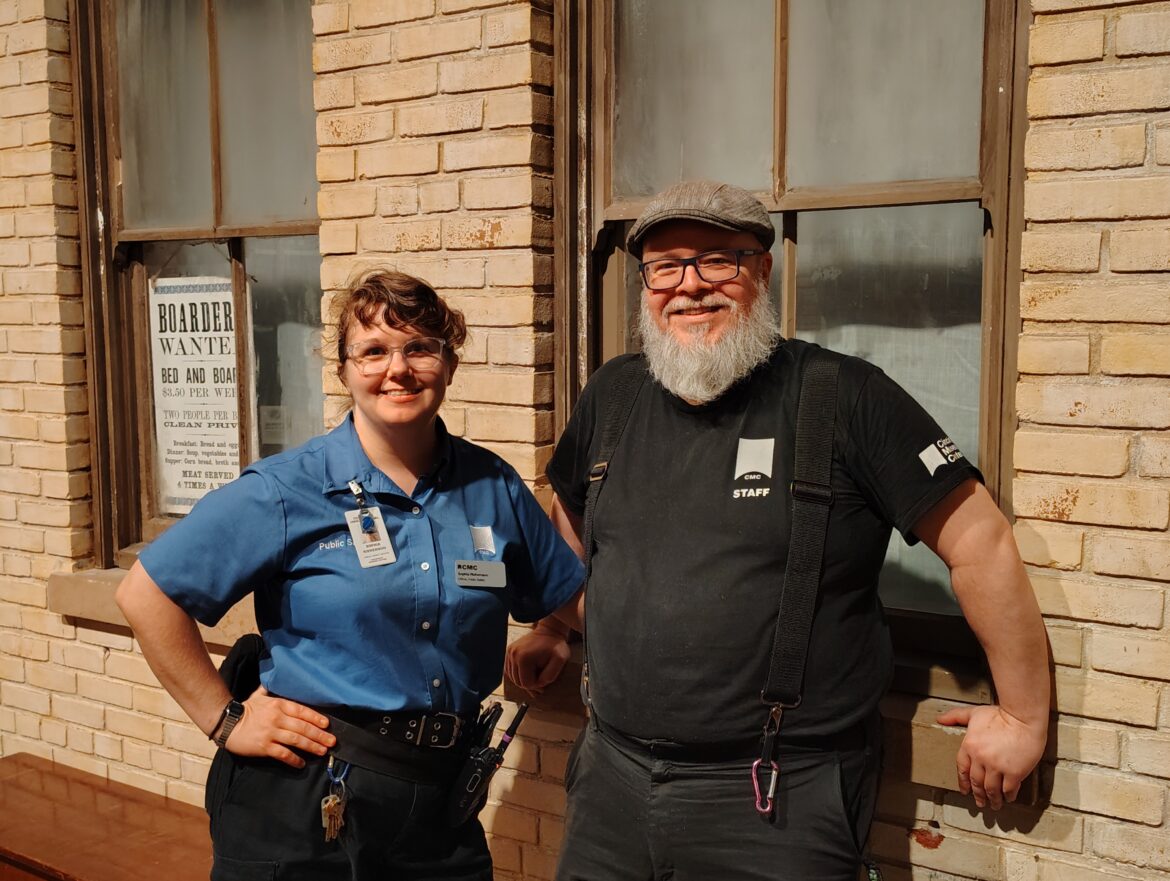In late 2021, Marc Gustwiller learned he was in kidney failure and needed a transplant. Statistically, within the Cincinnati metropolitan area, there were about 23 people who would be a match—about one in 100,000 people.
It turns out he didn’t have to look very far to find Sophia Riehemann ’15, who is one in a million.

Gustwiller, a retired chemist from Procter & Gamble, worked now in model trains and floor education at the Cincinnati Museum Center, welcoming families and sharing stories with eager children. Though he had secured some patents during his career, this was how he planned to leave his mark: adding details to model trains, encouraging and inspiring the region’s youth.
But after bloodwork revealed an autoimmune disorder was attacking his kidneys, Gustwiller’s second life was on track to be a short one. To find one of the two dozen people in the area who were a match for kidney donation, he set up a blog and posted signs on his car that read, “I need a kidney.”
“I made it my job to tell my story,” he said. “I had to. If I stayed quiet, I might not survive.”
It can’t be known how many potential matches drove on and ignored his plea, but it turned out that the person he needed parked in the same lot at the museum. Riehemann plopped herself down on a bench beside him and said, “I always figured I’d donate a kidney one day. Might as well be yours.”
Riehemann works for public safety at the museum. Gustwiller wasn’t exactly a stranger, but they didn’t know each other well. On any given day at the museum, Riehemann and Gustwiller would exchange small talk, smile in the hallways, but that was the extent of their relationship. She saw the signs on his car, the pins on his jacket. She had signed the back of her driver’s license, already pledged her organs to strangers who would need them upon her death.
This gave me a chance to help someone while I’m alive. He needed help, and nobody else was coming forward. I could, so I did.
Sophia Riehemann ’15
“This gave me a chance to help someone while I’m alive,” she said. “He needed help, and nobody else was coming forward. I could, so I did.”
On the bench that fateful day at the museum, Gustwiller was stunned. “I felt honored,’ he said, but I didn’t think it would go anywhere. One in 100,000—those odds don’t lean in your favor.” Also, he told her not to come to this decision from feelings of pressure or guilt. “This has to come from you,” he said, “not from sympathy.”
To protect himself from disappointment, Gustwiller kept up his skepticism, his realist understanding of probabilities. As the days went on, though, Riehemann let him know every time she passed a stage in the process. Then one day, she walked up and said, simply, “I’m a match.”
Gustwiller froze. “I had no words,” he said. “Just silence. All the emotion came at once. I couldn’t believe it might actually happen.”
Things that Scare You

Riehemann grew up in Bellevue, Ky., in a home shaped by intellectual curiosity and helping those in need. Her mother worked for the state office that addresses food insecurity. Her father was a mathematician who had taught at Berea College as a visiting professor in the 1990s. Education and service to others were concepts intrinsic to the family. In 1996, her parents helped create Camp Quest, a summer camp focused on inclusivity, rational inquiry and ethical living.
When it came time for Sophia to go to college, Dr. Robert Riehemann suggested Berea to his daughter. The younger Riehemann appreciated Berea’s focus on community and taking care of other people, and she fell in love with Asian Studies.
Her chosen major was the natural course of things for a girl who grew up fascinated by Japanese culture, especially anime and manga. In Asian Studies, Riehemann found herself drawn also to concepts in Buddhism and Taoism, which teach “a middle path between yourself and the community, what you’re expected to do and what feels right.”
Her campus job was with the art department, working first as a janitor, then as an art assistant.
“I learned to not be afraid of hard work,” she recounted, “that I’m capable of doing different things that might scare me—and that people are willing to help if you ask. Sometimes that’s the hardest part.”
The Surgery
Gustwiller settled into the hospital bed to prep for surgery. He had made peace with the risks but was still nervous. He had given a friend a sealed envelope with instructions in case the worst happened.
Through the curtain, “a little voice” said, “Hi, Marc!” It was Sophia, being prepped for surgery at the same time.
“It still gives me chills,” he admitted.
Both Sophia and Marc recovered quickly. Riehemann returned to work after a few months and resumed her role keeping the museum safe and responsive. Gustwiller bounced back with an energy he hadn’t felt in years. But he also faced new emotions—gratitude, anxiety and a lingering sense of awe.
“I still worry sometimes,” he admits. “Every little twitch, every cold—I wonder, is it the kidney? Did I do something wrong? But then I remember, I’m human. I get tired. I catch colds. And this kidney still works.”
Marc and Sophia still work at the museum, now with a bond that runs deeper than most friendships. They laugh about their shared love for cats, for quirky hobbies, for Japanese art. “She’s not a normal person—in all the right ways,” Marc says. “Normal people don’t donate kidneys to coworkers they barely know.”
“I can’t repay her,” Gustwiller continued. “She doesn’t expect me to. But I can honor it. I can use this second chance to make things a little brighter for someone else. That could mean a detail in a model train scene, a conversation that sticks with someone, or a moment of encouragement when someone needs it.”



[…] Read full article on Berea College’s magazine […]